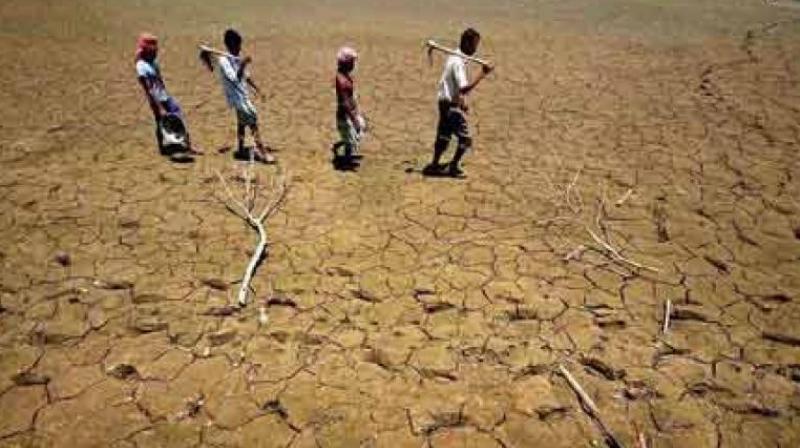Karnataka urges Centre to expedite release of Rs 4,702 drought relief fund
The state government has also sought a central relief of Rs 370 crore to help farmers whose crops were affected due to excessive rains.

New Delhi: Expressing concern over the plight of drought-hit farmers in the state, the Karnataka government on Thursday demanded that the Centre expedite the process to announce a relief package of Rs 4,702 crore for the crop loss in the Kharif season this year.
The state government has also sought a central relief of Rs 370 crore to help farmers whose crops were affected due to excessive rains in Bidar, Gulbarga and Yadgir districts.
The issue was raised by Karnataka Revenue Minister Kagodu Thimmappa and Agriculture Minister Krishna Byre Gowda at a meeting with Home Minister Rajnath Singh in New Delhi.
They also sought the intervention of Parliamentary Affairs Minister Ananth Kumar in the matter. Kumar is a BJP MP from South Bangalore.
Briefing media, Thimmappa said, "We requested the Home Minister to expedite the process. We have asked it to soon announce the relief amount of Rs 4,702 crore for drought-hit farmers and Rs 370 crore for excessive rain-affected farmers."
A High-Level Committee (HLC), headed by the Home Minister, will soon take a call on the quantum of relief amount to be released to the state, he said.
The state agriculture minister said, "We have requested the central government to call a HLC meeting at the earliest because we want to give compensation to affected farmers in this year itself."
The farm crisis has aggravated in the state. Farmers need to be compensated at the earliest as their rabi crops have also been hit due to a lack of rainfall, he noted.
The state government has put in place real-time gross settlement systems (RTGS) for transferring drought relief funds to farmers' bank accounts directly, Gowda said.
Since Rabi crops are also affected, he said more number of farmers are expected to take up the crop insurance policy under the Pradhan Mantri Fasal Bima Yojana.
Karnataka has been facing severe drought for the past six years. The drought in 2016-17 was the worst in 40 years. The state has declared 139 taluks out of 176 as drought-hit.
The state had a normal monsoon rainfall in June-July this year, but it witnessed a prolonged dry spell in August, September and October affecting agriculture, power generation, ground water reacharge, drinking water supply and fodder availability.

